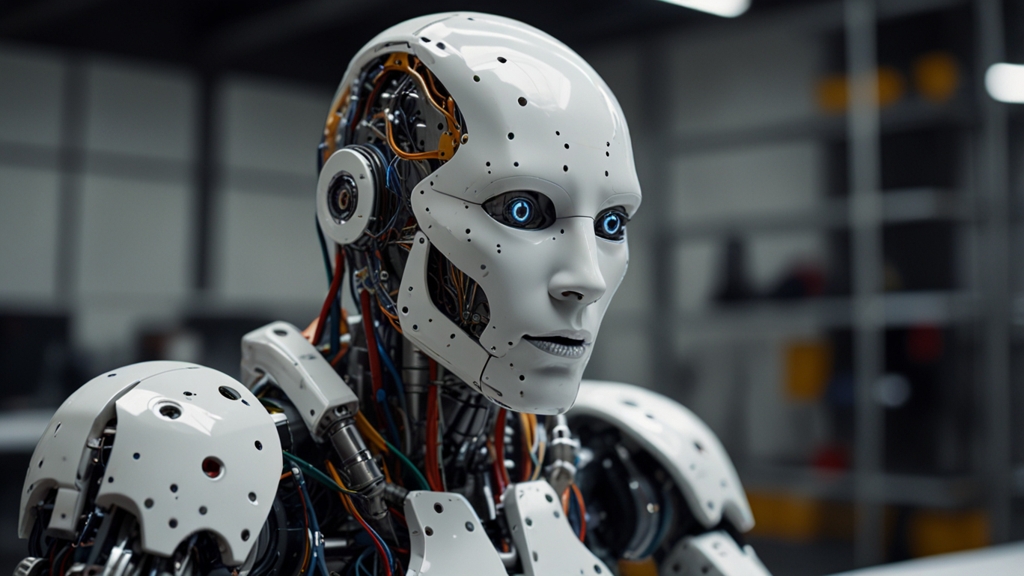Revolutionary Robotics Machines That Can Think
In recent years, robotics has made substantial strides, pushing the boundaries of what's possible in automation and artificial intelligence. What was once the domain of science fiction is rapidly becoming a tangible reality: machines that not only perform tasks autonomously but also possess the ability to think, learn, and adapt. These revolutionary robotic machines are poised to transform various industries and aspects of everyday life.
The Evolution of Robotics
The journey from rudimentary mechanical devices to advanced robotics has been long and fascinating. Early robots were simple programmable machines designed to perform repetitive tasks. They could execute pre-defined sequences with high precision but lacked any form of understanding or adaptability. However, with advancements in sensors, computing power, and artificial intelligence, modern robots have gained capabilities that were unimaginable just a few decades ago.
Artificial Intelligence: The Catalyst
Artificial intelligence (AI) has been the key driver in the development of thinking machines. AI algorithms, particularly those involving machine learning and neural networks, enable robots to analyze data, recognize patterns, and make decisions based on their observations. This leap allows robots to perform complex tasks, such as navigating unpredictable environments, recognizing objects, and interacting with humans in more natural ways.
"The rise of AI-powered robotics marks a significant milestone in technological progress, akin to the invention of the internet or the Industrial Revolution." - Dr. Emily Wong, Robotics Expert
Applications of Thinking Robots
Thinking robots are finding applications across a broad spectrum of fields, from healthcare to manufacturing and even in domestic settings.
Healthcare
In healthcare, robots are assisting surgeons in performing intricate procedures with remarkable precision. These robotic assistants can process real-time data during surgery, making rational decisions to enhance surgical outcomes. Moreover, AI-driven robots are improving patient care through diagnostics, rehabilitation, and eldercare, providing support that is both reliable and empathetic.
Manufacturing
Manufacturing is another field that has significantly benefited from thinking robots. Smart robots are capable of adapting to new tasks without extensive reprogramming. They can optimize production lines, perform quality control, and even predict maintenance needs by analyzing equipment data. This adaptability not only enhances efficiency but also reduces downtime and operational costs.
Domestic Assistance
In homes, robotic assistants are becoming increasingly prevalent. From vacuum cleaners that map out living spaces and optimize their cleaning routes to personal assistants that manage household chores and entertain, these AI-powered devices are transforming the way we live. The ability of these robots to learn from their interactions ensures continual improvement in their utility and user experience.
"By incorporating AI, robotics is not just about automation anymore; it's about creating intelligent systems that enhance human capabilities and improve our quality of life." - Prof. Alan Turing, AI Theorist
The Ethical Considerations
While the potential of thinking robots is immense, it also brings forth ethical considerations that need careful deliberation. Issues such as job displacement, privacy concerns, and the ethical use of AI in decision-making are critical aspects that society must address. Ensuring that these technologies are developed and deployed responsibly will be paramount in harnessing their full potential for the greater good.
The Future of Thinking Robots
The future of thinking robots is filled with promise. As AI continues to evolve, we can anticipate even more sophisticated robotics capable of performing tasks that currently seem insurmountable. The integration of more advanced cognitive functions, emotional intelligence, and ethical reasoning will further blur the lines between human capabilities and machine intelligence. This symbiotic relationship between humans and machines holds the potential to unlock unprecedented advancements and propel humanity into a new era of innovation and prosperity.
"The future belongs to those who can embrace technology without losing sight of the human touch. In the age of thinking robots, our challenge is not just to create intelligent machines but to forge a compassionate and inclusive world." - Dr. Sophia Briggs, Futurist
In conclusion, revolutionary robotics machines that can think are transforming our world, bringing about significant advancements in various fields while presenting new ethical challenges. As we continue to develop and interact with these intelligent systems, it is crucial to navigate these changes thoughtfully and responsibly, ensuring that the fusion of human and artificial intelligence leads to a brighter, more inclusive future.









